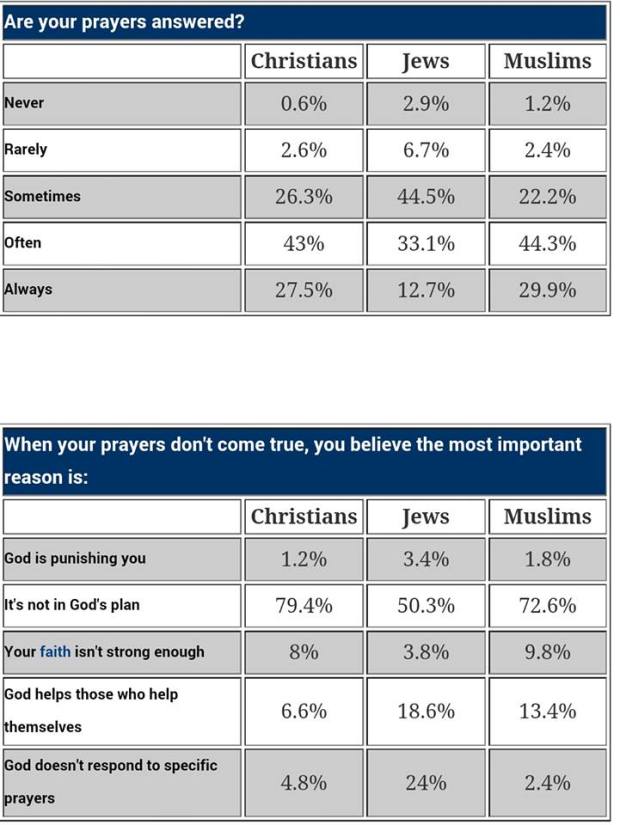If health is a gift from God given to those who pray for it, why is the health and longevity of a people directly linked to the quality of healthcare in that nation not their religion/lack of?
For example, Congo, one of the largest Christian nations, with 95% of its inhabitants identified as believers, has an average life expectancy of 49. (1, 2)
On the other hand, Northern Europe, which includes large populations of atheists (estimated upwards of 60% in some Scandinavian nations) has an average life expectancy of 81. (2, 3)
If health comes from prayer, why do the third world faithful die young, while the faithless with access to modern medicine live longer?


